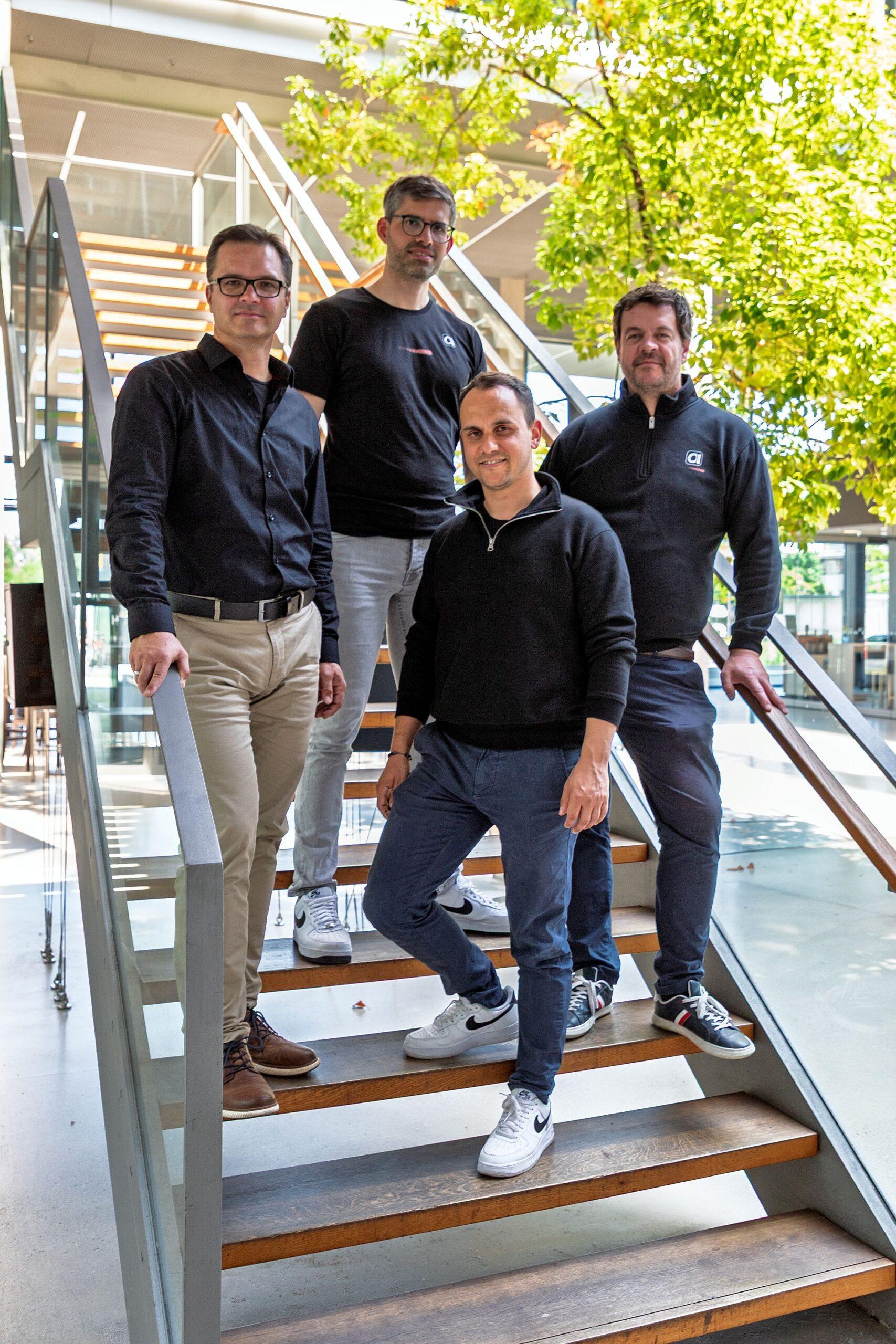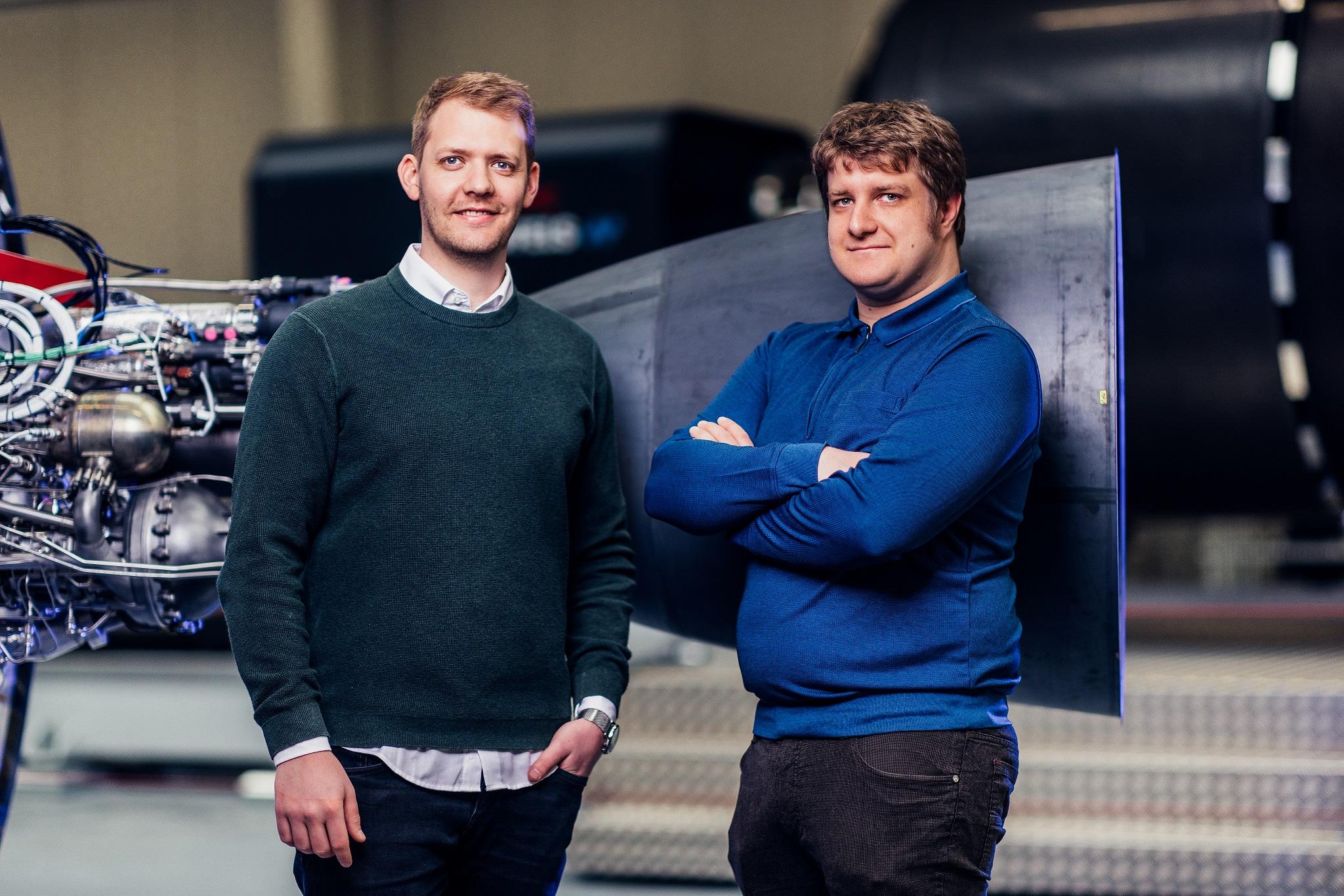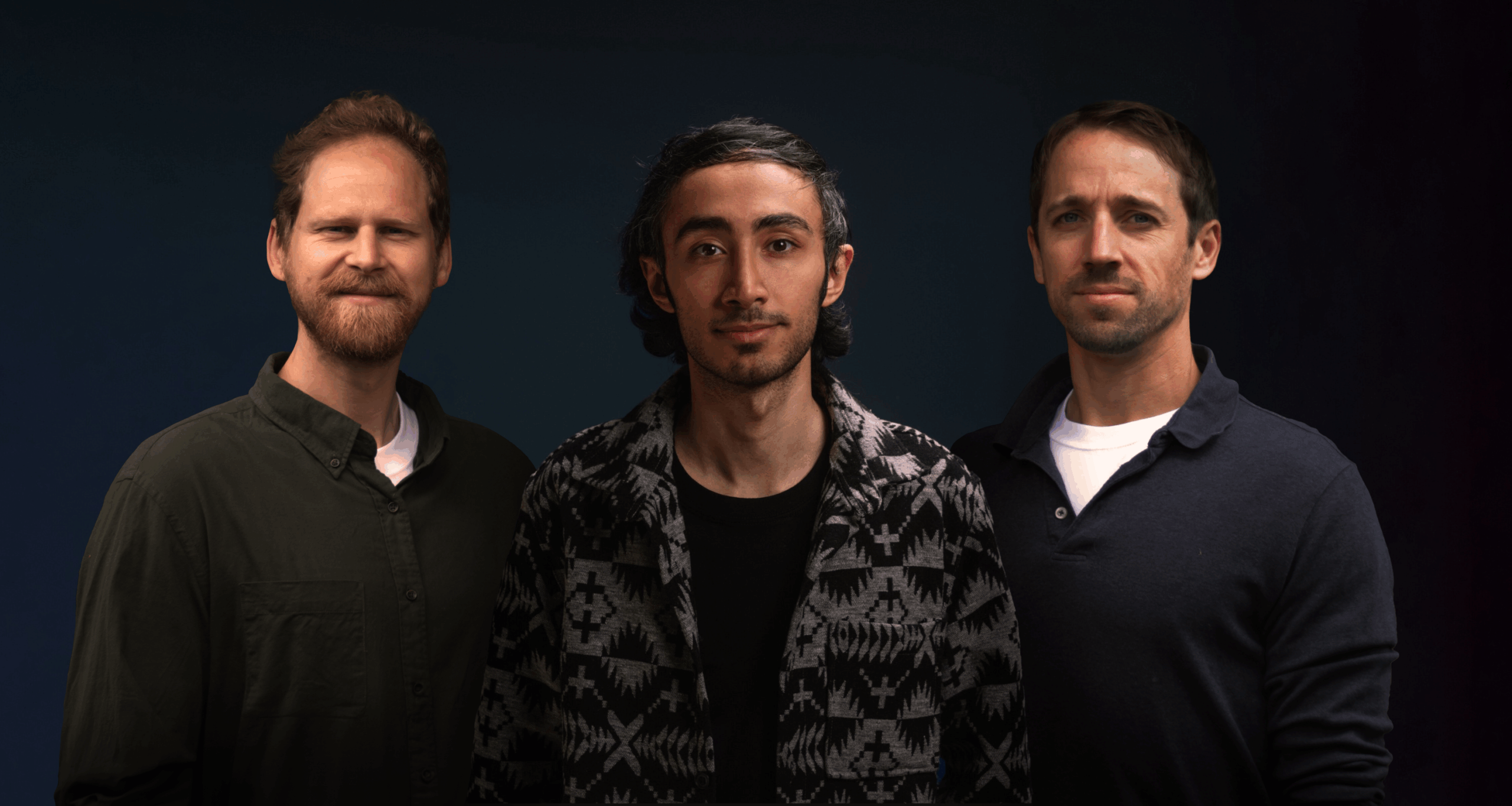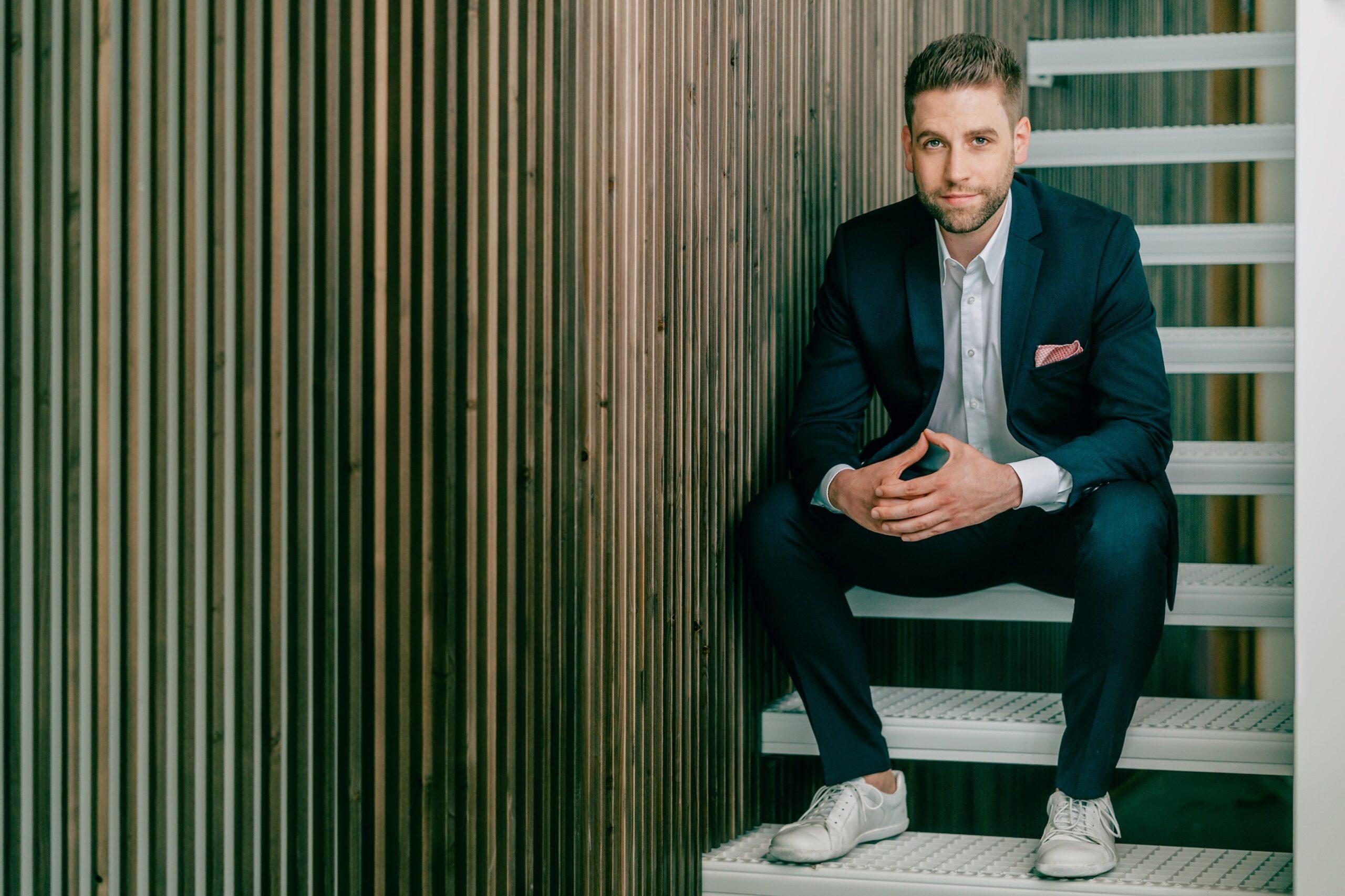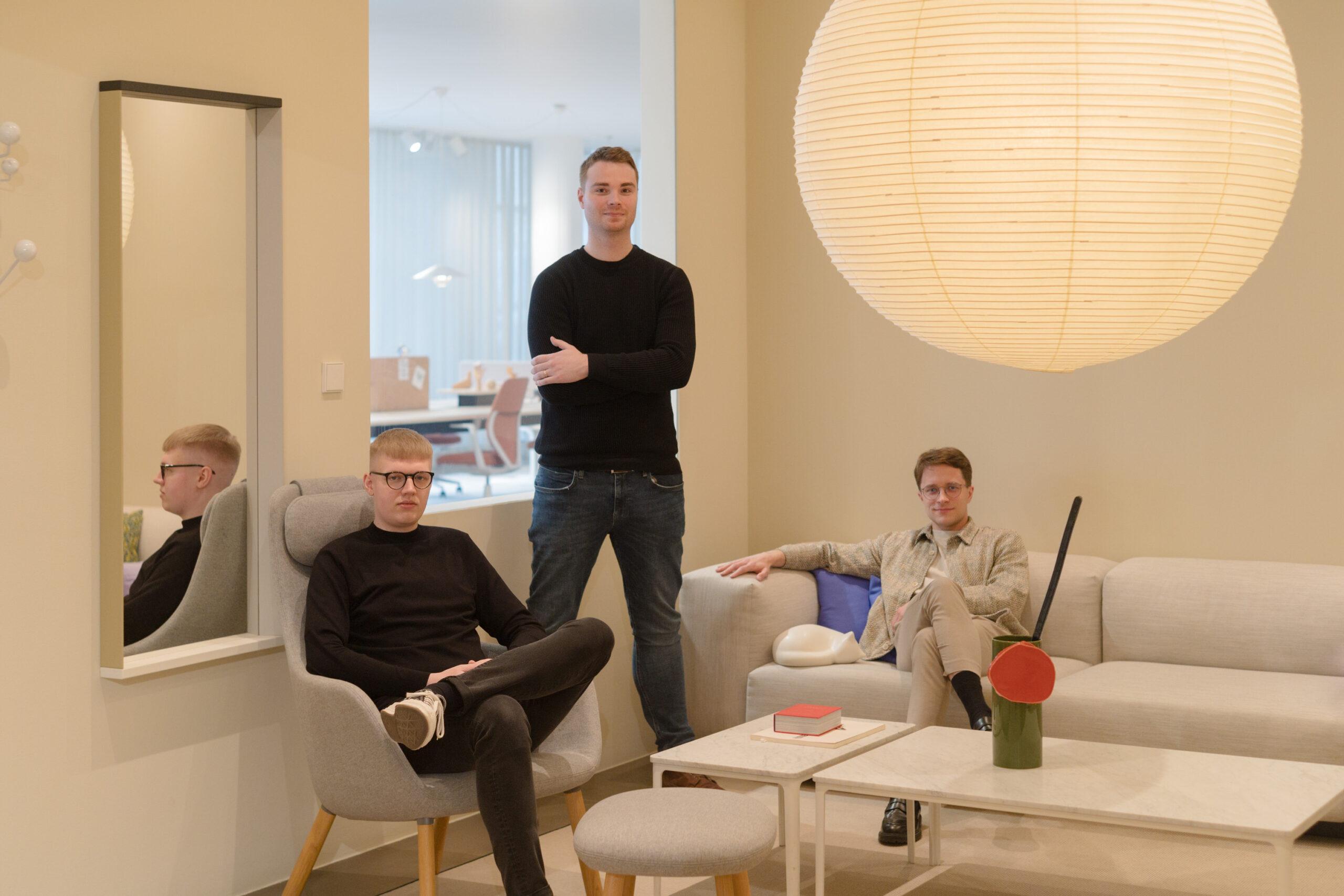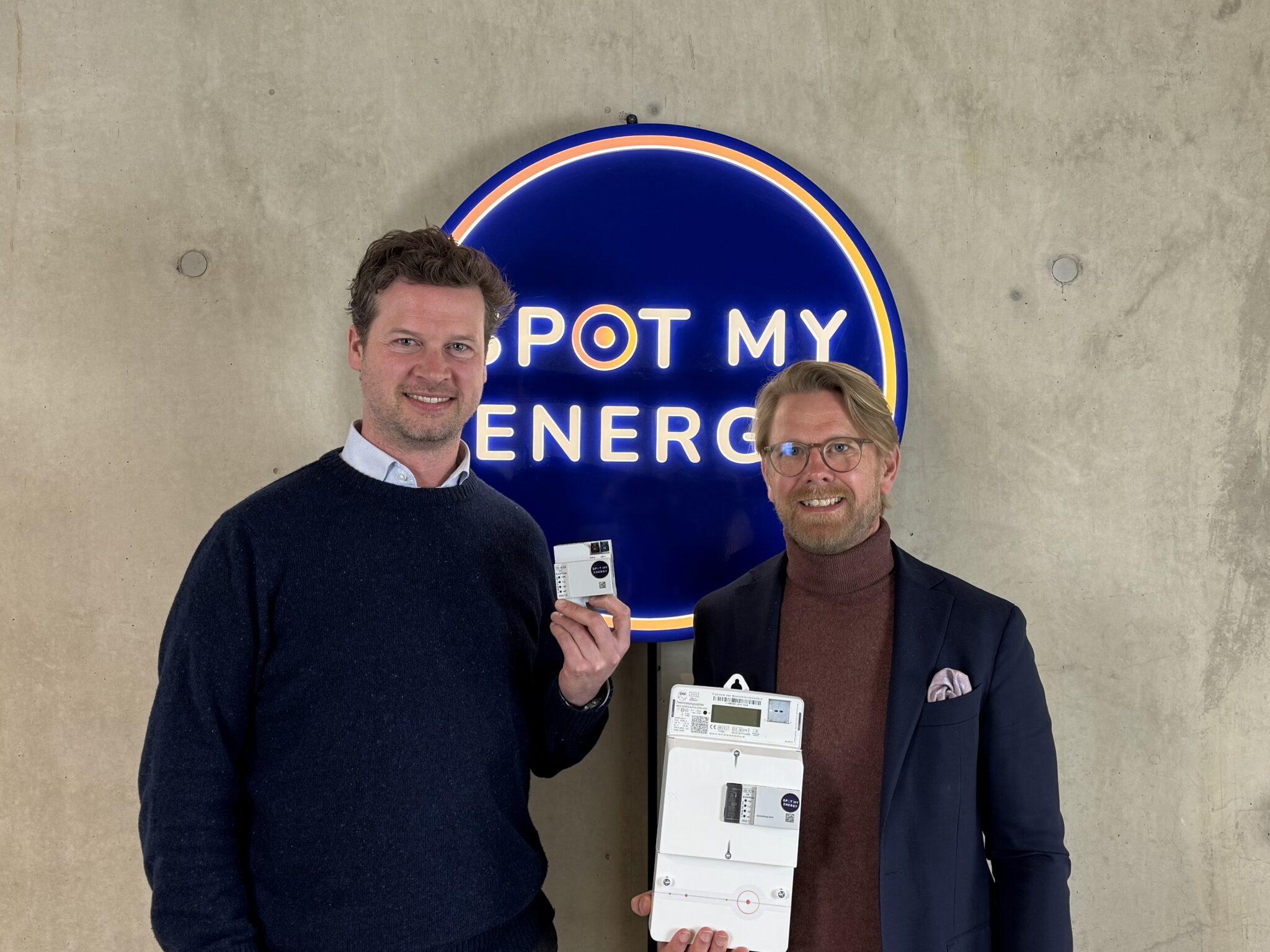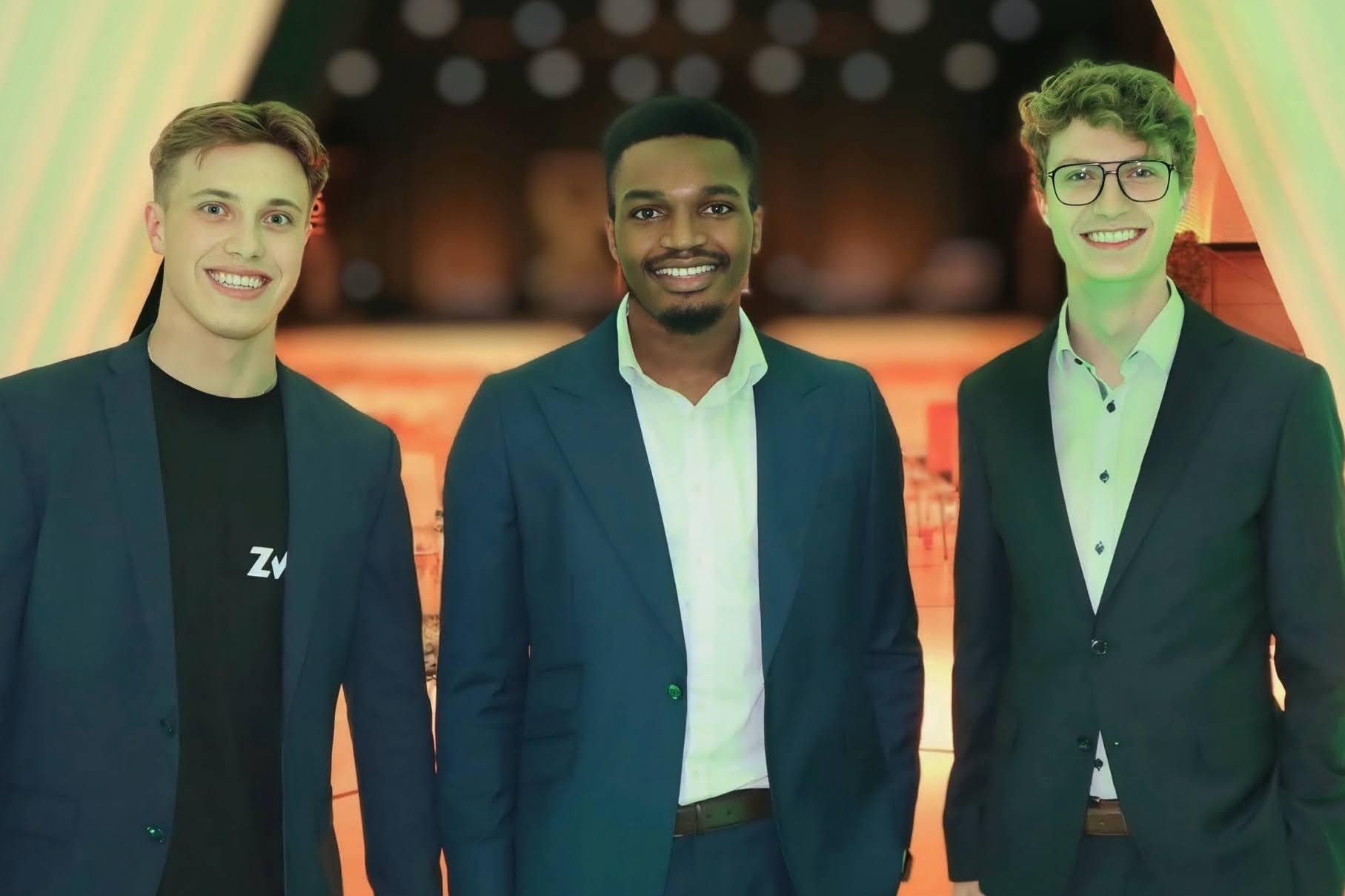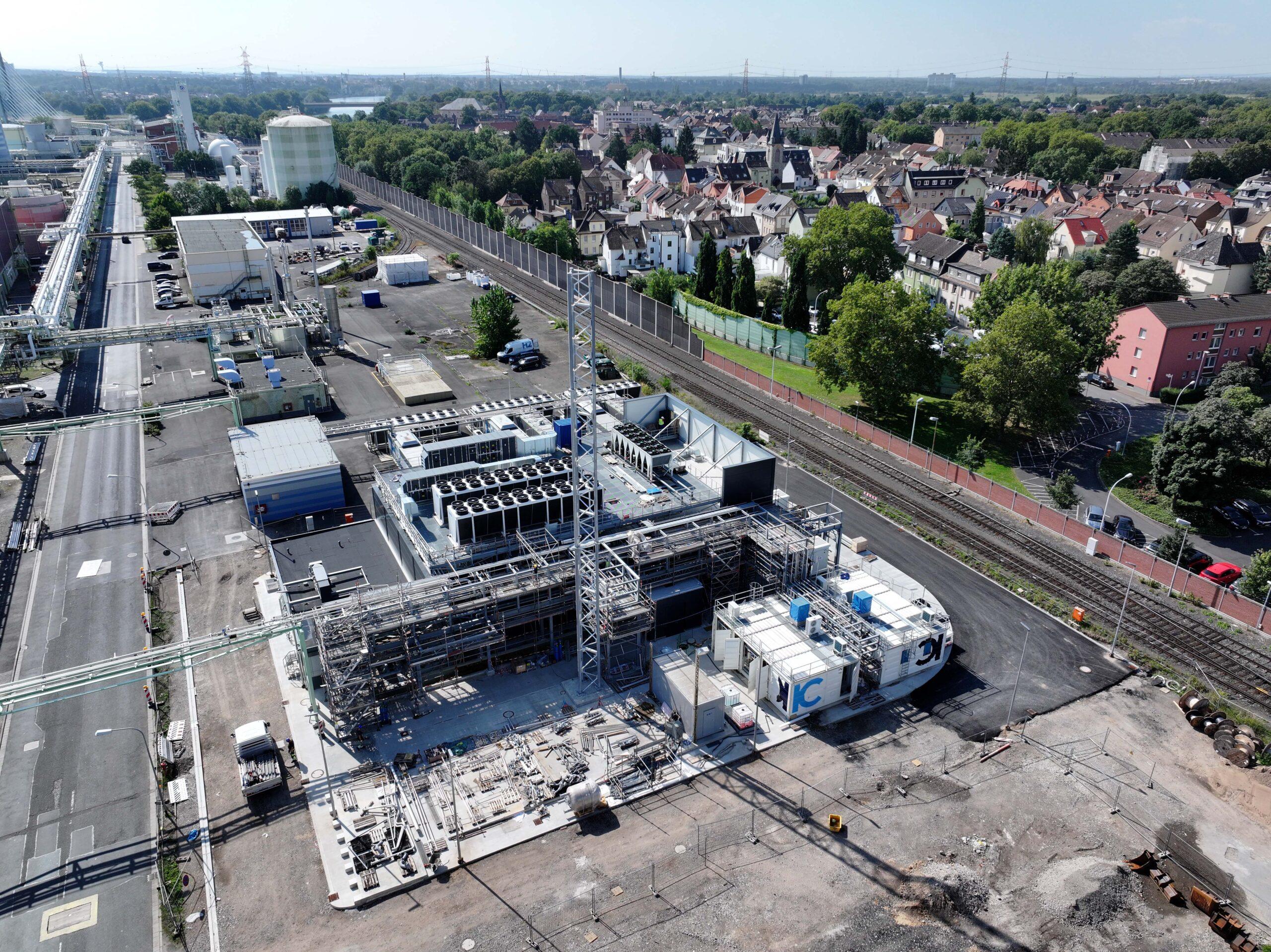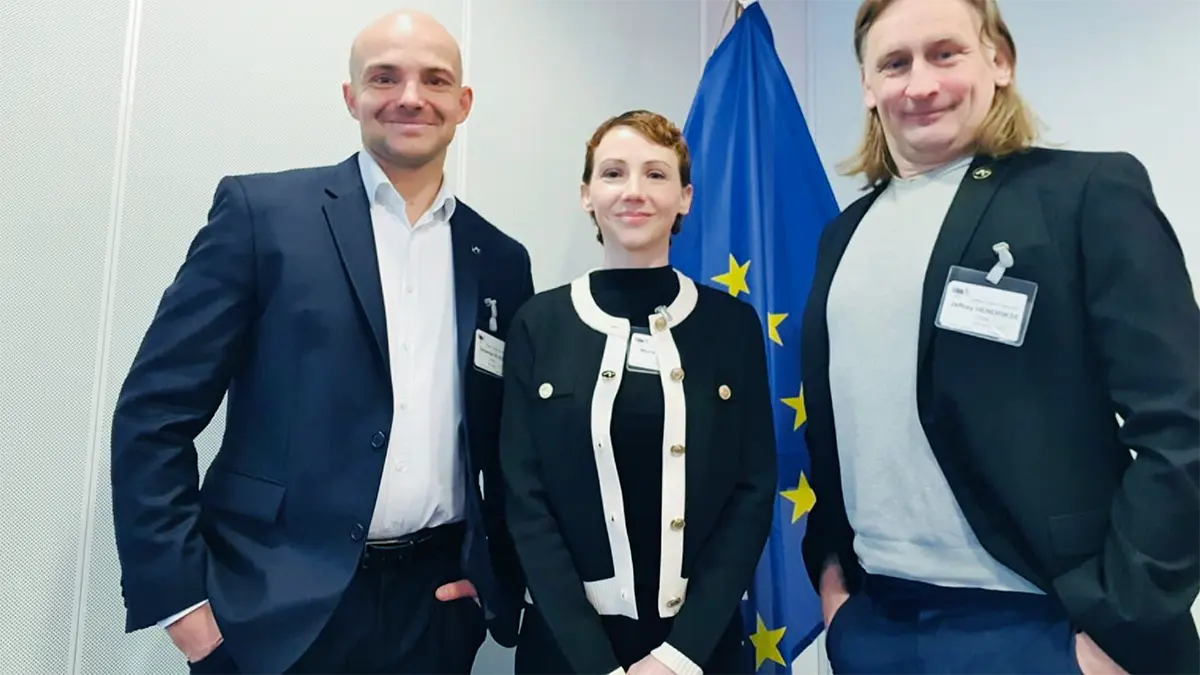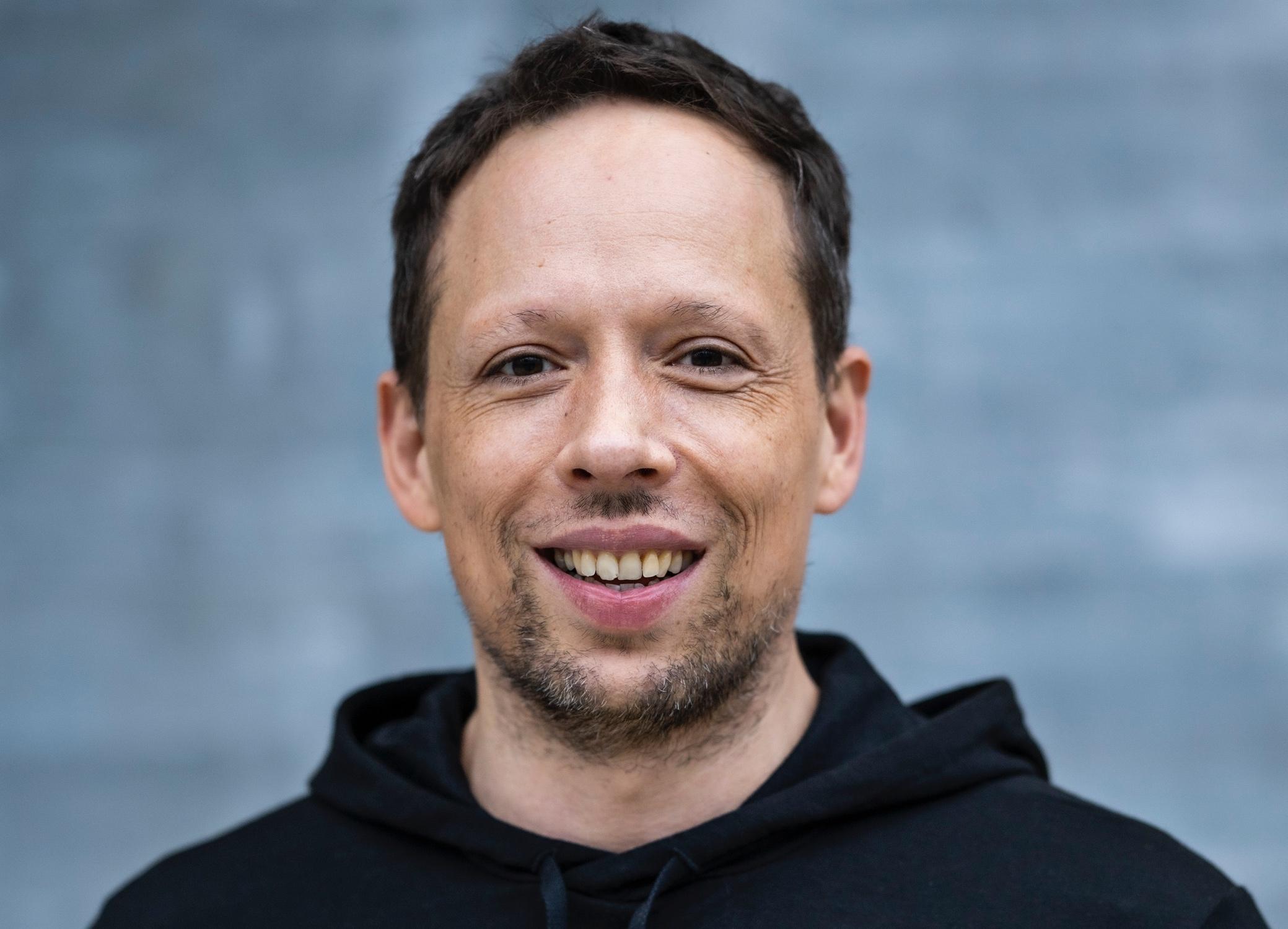"Few things worked right away"
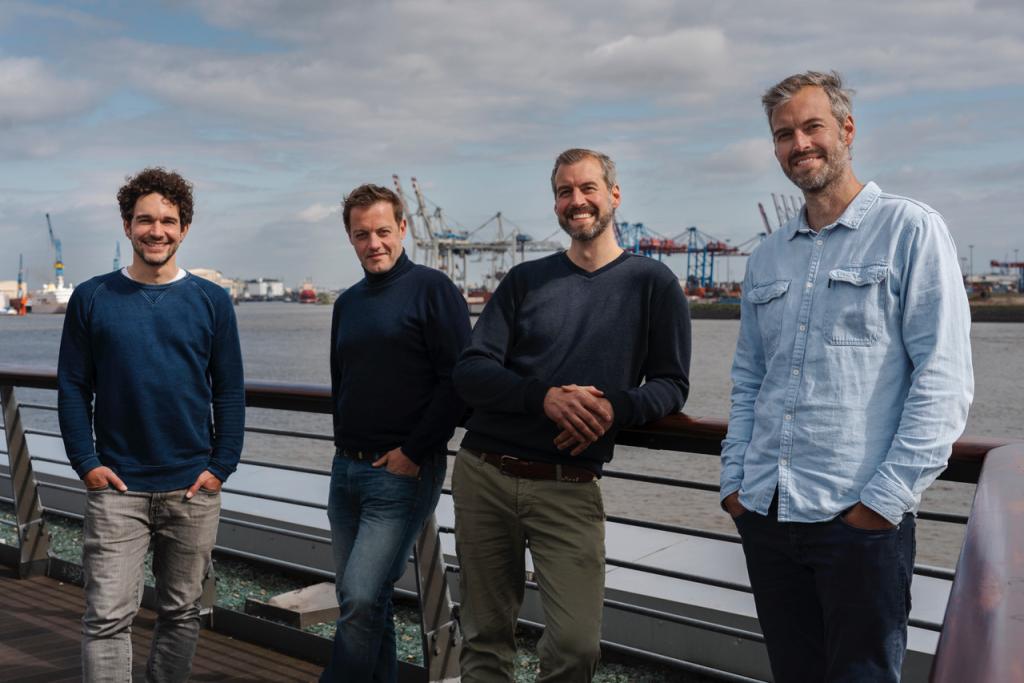
Flip co-founder Dominik Sothmann talks in an interview about how the research start-up has developed a recyclable sneaker together with shoe manufacturer Monaco Ducks.
It's been a little less than a year since the research start-up Flip published images of an illegal garbage dump in Kenya. Mountains of used textiles and shoes, exported from Europe to Africa, where nobody can use them anymore and they pollute the environment. This is where the journalists went on an investigation: the sneaker hunt. Flip equipped celebrities' old shoes with GPS transmitters and threw them into recycling boxes to track their path.
After the sneaker hunt, the start-up launched an experiment: they wanted to produce a recyclable sneaker with a sole made of 25 percent granulate from shredded old shoes. Flip and shoe manufacturer Monaco Ducks have since founded the new company GRND for the project. In this interview, Flip co-founder and GRND project manager Dominik Sothmann talks about the project - and their current crowdfunding campaign.
Mr. Sothmann, you want to produce a shoe that solves Africa's waste problem. How do you plan to do that?
The sneaker won't solve any waste problems at first. We see our sneaker more as a pioneering project. We want to get people talking about the waste problem. And we hope that it will lead manufacturers to consider, for example, take-back systems that bring shoes back to the point where they are put into circulation.
The idea sounds crazy at first: producing your own sneakers. How did you come up with it?
The most impressive thing for us was seeing the pictures of textile waste in Africa. It does something to you. We decided at the beginning of this year: Actually, we shouldn't stop at this problem. However, we had no idea about the whole issue, as we are not shoe developers. So we got together with Monaco Ducks and the Faculty of Design, Fashion and Sustainability at Reutlingen University to try an open experiment. We quickly realized that we also needed partners in Kenya because the processes and structures there are different. That's why it's good to have Africa Collect Textiles with us as a small start-up that can support us. The overriding premise was always: in the end, the sneaker must do more good than harm.
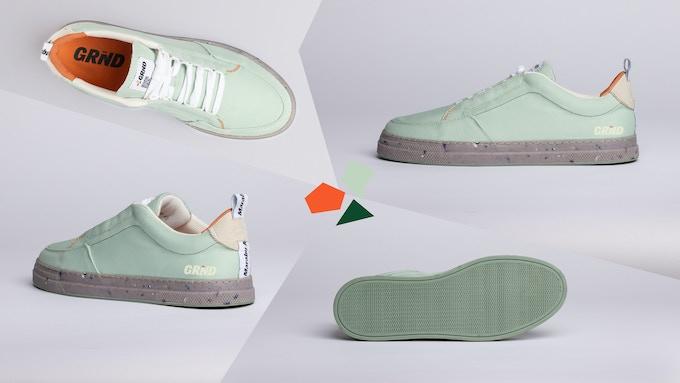
As you say, you had no idea about manufacturing. And it still all worked out that way?
No, few things worked right away. Finding partners was not so easy, especially in Kenya, a country where there are really quite different challenges to taking part in a sneaker experiment. Our vision is to keep shifting the value chain to Kenya. But we are still miles away from that. But you have to start somewhere. Being able to produce a complete shoe in Kenya at some point would be simply mega.
During the design phase, we made sure to consider the recyclability of the product right from the start.
At what point does it become worthwhile to transfer the entire value chain to Kenya?
It's not easy to answer when it's worth bringing the added value to Africa. The question is rather: how long does it take to prepare adequately on site? If you think in stages, you need someone who can produce the sole in Kenya. But we haven't yet found anything in this area that is suitable.
With your crowdfunding you write that a conventional sneaker has around 30 components. Your sneaker only has 15, 13 of which are recyclable. How can that be?
During the design phase, we made sure to consider a certain recyclability of the product right from the start. This depends on having as few parts and as few different materials as possible. Otherwise you end up with a shoe that has to be dismantled into its individual parts before it can be properly recycled. The upper shoe therefore consists mainly of a single material.
You are planning your own recycling program to ensure that your sneakers do not pollute the environment in Africa at the end of their life cycle. How will this work?
We have attached a QR code to the tongue of the shoe, which you can scan with your cell phone and then land on a page that describes how to return the shoe to us. The customer gets ten euros back from the purchase price or a 20 euro voucher for the store. We don't yet know how we want to recycle some parts of the sneakers. But because we have so little material mix in the upper shoe, I am confident that we will be able to recycle them.
After 54 minutes, you have already reached your first crowdfunding target of 10,000 euros. More than 500 people have now contributed. How do you explain this success?
I believe that we have reached a lot of people through the sneaker hunt and that many people are interested in how we can deal constructively with the problems we have uncovered. Our project is not a panacea, but a possible approach. I personally believe that there is a general desire in society to not only learn about problems, but also about possible solutions and what can be done about them.
What happens now?
Our crowdfunding with GRND still has a few days to go. If you like, you are welcome to take part. After that, it's all about producing the crowdfunding amount. We have to organize this and materials and fabrics have to be ordered. But new questions also arise: What kind of staff do we need to be able to run something like this sustainably? And which distribution channels will be important in the future? We still have to plan that.
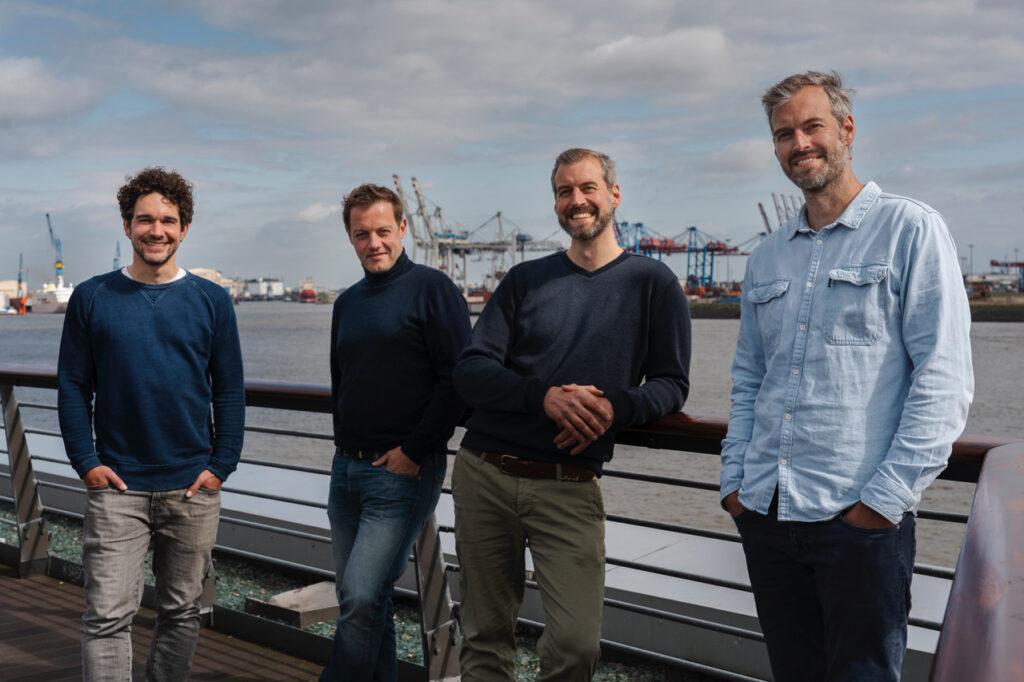
You uncovered the scandal with Flip, then made the shoe and now also report on your own sneaker. How does the editorial team maintain its journalistic independence when financial interests play a role?
The editorial and product sides are clearly separated here, just like in any other media company. When the sneaker was still an experiment, the editorial team accompanied us during prototype development and reported on everything that happened. Since the start of crowdfunding, not a single journalist from our team has had anything to do with the shoe. The project has been transferred to its own company, GRND. Just like Monaco Ducks, Flip has a 50% stake in this company, with product and innovation experts in operational management.
Thank you for the interview.
Personal details: Dominik Sothmann founded the research start-up Flip in 2020 together with his brother Christian and the two journalists Felix Rohrbeck and Christian Salewski. He recently also became project manager at GRND, the joint venture between Flip and Monaco Ducks. Sothmann previously worked as a consultant and project manager in the energy industry, including at green energy provider Lichtblick.

Newsletter
Startups, stories and stats from the German startup ecosystem straight to your inbox. Subscribe with 2 clicks. Noice.
LinkedIn ConnectFYI: English edition available
Hello my friend, have you been stranded on the German edition of Startbase? At least your browser tells us, that you do not speak German - so maybe you would like to switch to the English edition instead?
FYI: Deutsche Edition verfügbar
Hallo mein Freund, du befindest dich auf der Englischen Edition der Startbase und laut deinem Browser sprichst du eigentlich auch Deutsch. Magst du die Sprache wechseln?




